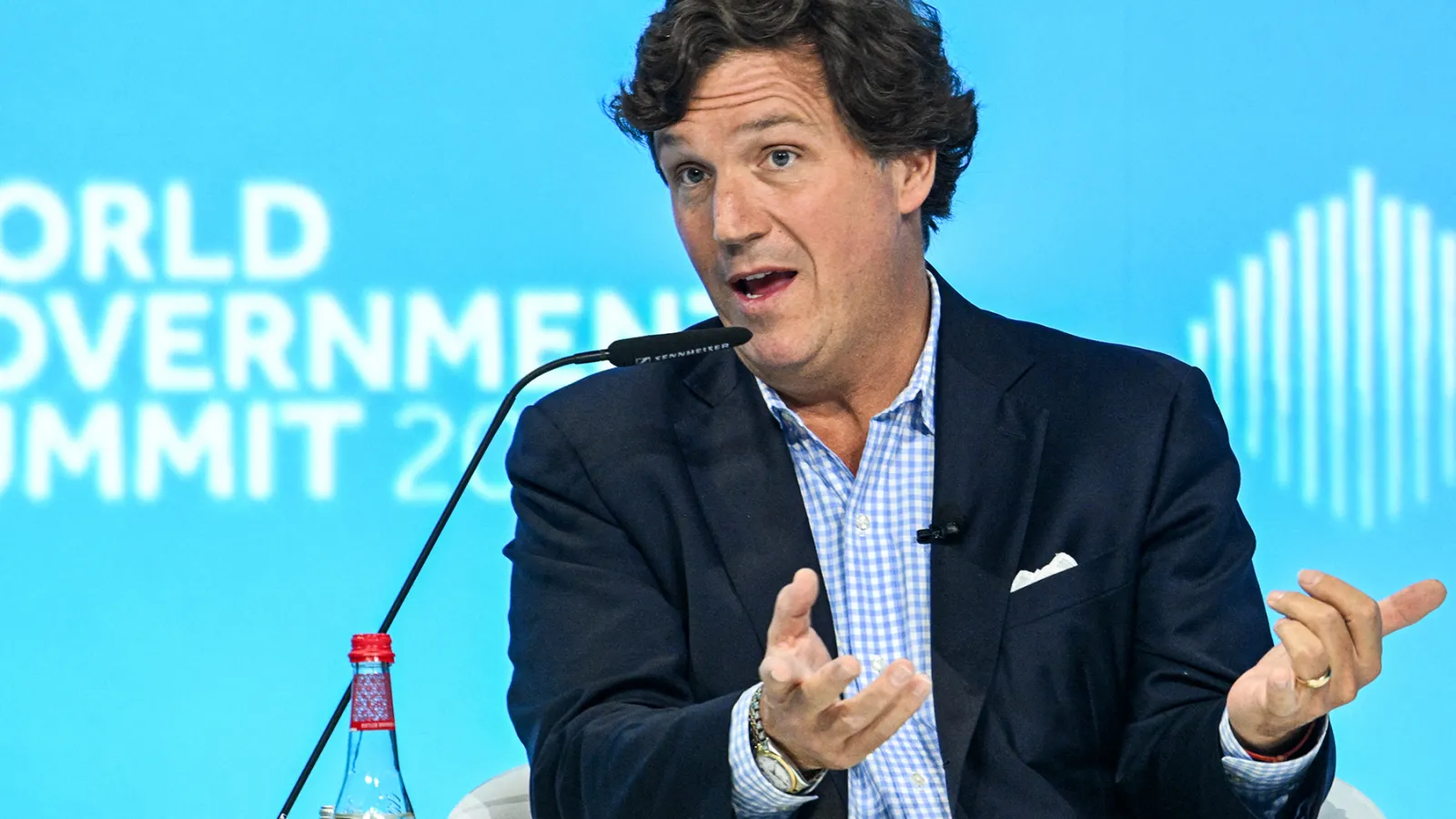Tucker Carlson’s recent stance defending authoritarianism has swiftly backfired on him.
Just before the tragic demise of Russian opposition figure Alexei Navalny in prison, the former Fox News host found himself justifying Vladimir Putin’s political actions.
During his appearance at the World Government Summit in Dubai, Carlson, fresh from his controversial visit to Russia where he conducted an interview with Putin and seemingly trivialized the severity of his questions, attempted to justify his approach.

However, his defense, notably his remark downplaying political assassinations as a necessary aspect of leadership, drew sharp criticism. Notably, Egyptian journalist Emad El Din Adeeb highlighted Carlson’s failure to address critical issues such as the imprisonment of journalists, speech restrictions, and the persecution of Navalny during his interview with Putin.
Carlson’s assertion that leaders, including his own, engage in acts of violence as part of their leadership responsibilities, came under intense scrutiny. His comment seemingly downplaying the significance of political killings reverberated particularly harshly in light of Navalny’s untimely death merely days later, following three years of incarceration.
The timing of Navalny’s passing, so soon after Carlson’s attempt to rationalize Putin’s regime, has underscored the dangers of downplaying authoritarian actions and the consequences they entail.


